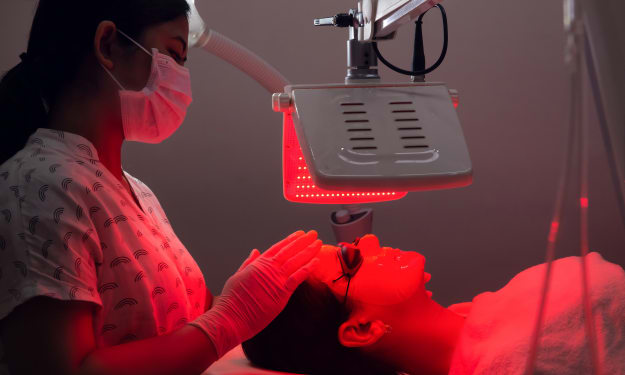Is Too Little Sleep Making You Fat
Many of us are living at low level of sleep deprivation.

If you find yourself dragging during the day, what do you do? If you're like me, you snack. A snack boosts your blood sugar, giving you a quick energy boost, and your off and running. So it wouldn't be too surprising to find yourself snacking throughout the day to maintain your energy level. The downside is the extra calories you take in from snacking.
Sleep-Deprived Have Enhanced Ability To Smell Food
Scientists have already determined that sleep-deprived individuals crave high-calorie food. However, they didn't know why. Although you may question if scientists already knew this, what's so important about the why?
The why may point toward a strategy to circumvent the behavior.
Thorsten Kahnt, a neurologist from Northwestern University's Feinberg School of Medicine, may have discovered a key. The sense of smell in sleep-deprived volunteers is enhanced. Smell initiates appetite, as anyone walking into a bakery smelling fresh baked goods can attest to. Kahnt determined that the enhanced smell of the sleep-deprived also prefers high caloric food.
https://clinicaltrials.gov/ct2/show/NCT050934J3
The researchers put the sleep-deprived volunteers into an MRI to see how this was happening. While being scanned in the MRI, the volunteers were given a variety of smells of both foods and non-foods. While the piriform showed increased activity, the information flow between the piriform cortex and the insula decreased.
https://www.science.org/content/article/h ere-s -how-skimping-sleep-can-change-your-appetite
Why That Matters
The piriform cortex is the part of the brain that processes smell. In sleep-deprived individuals, this brain region shows more significant activity and is enhanced. Enhanced as in more sensitive to food smells.
The insula cortex is a multimodal part of the brain that regulates food processing. For example, the insula cortex integrates taste, olfactory, and somatosensory inputs.
While it is too early to define this as a cause and effect based on one experiment, it does invite more experiments to be performed.
Nevertheless, the results suggest that the enhanced smell and decreased communication between the piriform cortex and insula will tend to cause an individual to choose higher caloric foods.
Is The Loss of Sleep Making You Fat, Or Is Fat Making You Lose Sleep?
New research has come to light that might flip this around. Research from the University of Pennsylvania and published in PLOS Biology suggests excessive weight can cause poor sleep.
https:/www.sciencedaily.com/releases/2020/04/200422091205.htm
The research conducted on worms may not apply to humans: it is suggestive of the biochemistry involved and needs further investigation.
The researchers were studying the relationship between metabolism and sleep. A series of studies using genetically engineered worms that could not sleep, found that ATP levels decreased, and the worms became obese. Researchers focused on the worm's KIN-29 gene, thinking that the release of fat is promoted during sleep. 1%en researchers expressed an enzyme that freed fat from the worms, they could sleep again.
The KIN-29 is homologous to our human Salt-Inducible Kinase (SIK-3) gene, which is associated to signal sleep.
In my previous article on fat, "Understanding Fat The Secret To Getting Your Body Fat Under Control," fat is not an accumulation of inert cells.
https://vocal.media/longevity/understanding-fat-the-secret-to-getting-your-body-fat-under-control
Fat is not inert, fat is an organ that is part of your endocrine system. As part of your endocrine system, it can receive and transmit chemical messages to your brain and the rest of your body.
Researchers are theorizing that there may be a signaling problem between fat and the brain, causing a short sleep cycle and the tendency toward obesity.
Strategy Action Steps
If you didn't get a good night's sleep, you know that you will probably be craving higher-calorie food. So what can you do to ensure a good night's sleep?
Cut the Caffeine: If you drink caffeine and find it difficult to fall asleep or wake up frequently during the night, too much caffeine may be an issue. You may want to try stopping caffeine intake at night and see if that improves your sleep.
Cut the Alcohol: A drink before bed can help some people fall asleep. However, it decreases the quality of sleep. Alcohol suppresses REM sleep and relaxes the throat muscles, which can worsen snoring.
Exercise during the day will help you sleep at night. However, avoid exercising two to three hours before bedtime as this may stimulate you and make it harder to fall asleep.
Sleep Hygiene, create a sleep schedule and then stick to it. Calculate the average number of hours you slept every night for the last week. Use this as a starting point. Are you tired during the day? A yes indicates to you to increase your sleep time. Figure out how much time you need to sleep every night. It may be six hours or nine hours, or anywhere in between? Decide what time you will go to sleep and what time you will wake up. If you are sleepy during the day adjust it as necessary. Find your rhythm, discover the number of hours of sleep you need each night to feel energized when you wake up. Having a good sleep routine will help you fall asleep and wake up ready to go.
About the Creator
John Iovine
Science writer





Comments
There are no comments for this story
Be the first to respond and start the conversation.